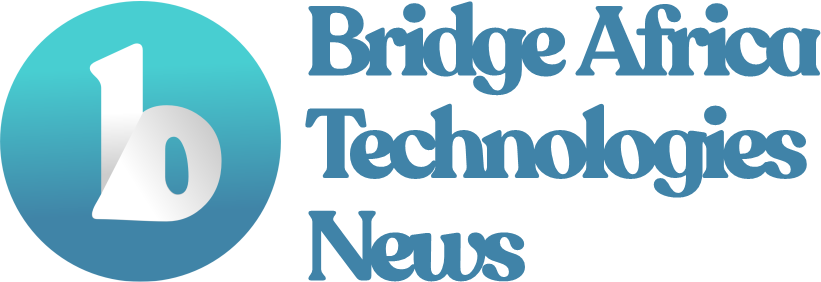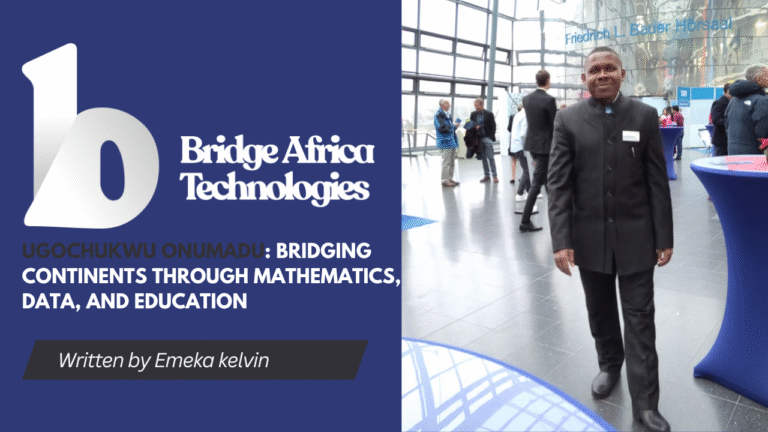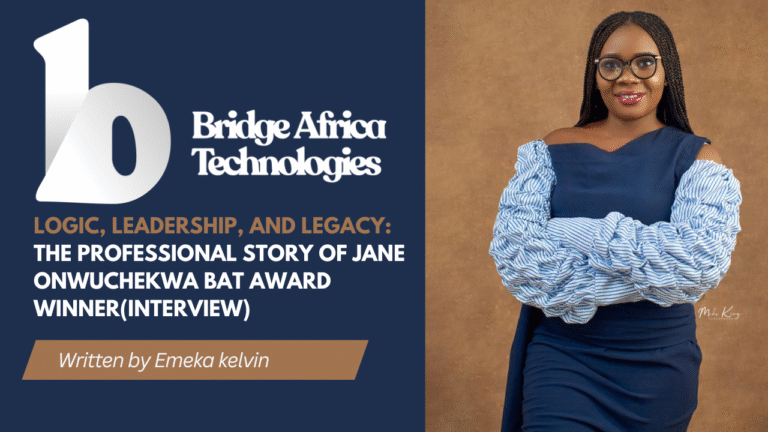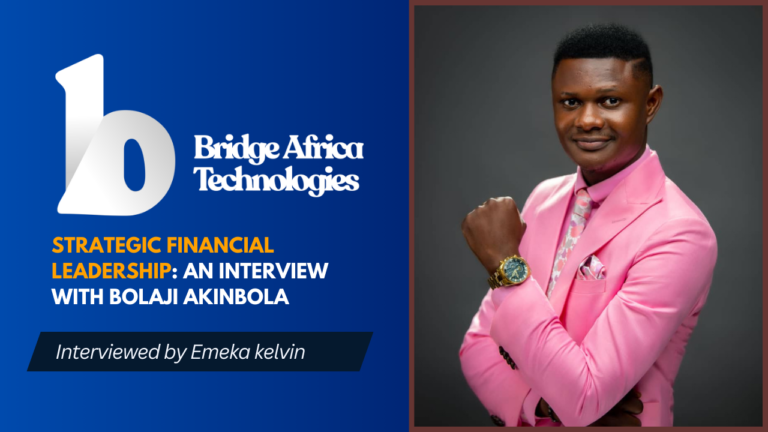Victoria Bigila Mercy stands at the intersection of finance, accounting, and cybersecurity. She is an accomplished professional who has consistently demonstrated her ability to adapt, lead, and innovate across industries and borders. With nearly two decades of experience that span Nigeria and the United States, Victoria has carved a distinct path defined by a rare blend of financial expertise and advanced technical acumen.
Her professional journey began with a diploma in Banking and Finance from Yaba College of Technology, Lagos, followed by her induction as a Chartered Accountant in 2011. She went on to earn a Bachelor’s and later a Master’s degree in Accounting from the University of Lagos, strengthening her foundation in corporate finance and risk management. However, it was her foresight into the evolving landscape of finance and its intersection with technology that propelled her to new heights. In 2023, she completed a Master of Science in Computer Science with a focus on Information Assurance and Cybersecurity at Austin Peay State University, Tennessee, United States, cementing her status as a dual-domain expert.
Victoria’s cross-disciplinary skills have translated into meaningful contributions in both banking and tech-driven environments. Her roles at Access Bank Plc, Tixfest Solutions, and more recently in the U.S. as a Data Security Analyst at WASFAM Logistics have seen her leading security audits, risk analysis, and systems fortification initiatives. Her tenure includes designing robust data security models, leading penetration testing operations, and collaborating on software development with secure coding best practices. She has also served as an Operations Risk Analyst, a Graduate Teaching Assistant in Data Security, and an Application Security Analyst.
Victoria’s impact isn’t confined to corporate spaces alone. Her academic contributions include multiple peer-reviewed publications in cybersecurity and digital forensics, covering topics from drone data privacy to malware analysis. Notably, her paper “Impact of Network Security on Cybercrime Mitigation in Nigeria” remains a vital reference in understanding cybersecurity in African financial ecosystems.
Her dedication and influence have been formally recognized. She was honored with the BAT Award of Excellence in Financial Technology Innovation (2024), a testament to her ability to merge financial systems with advanced tech safeguards. She also served as a judge at the Dratech Hackathon 2023, assessing projects that explored data innovation and cybersecurity advancement in Africa.
What sets Victoria apart is not just her credentials or accolades, but her unwavering passion for building secure financial futures, particularly in emerging economies. Whether championing cyber resilience in African banks or mentoring students in U.S. universities, she brings a global mindset with local relevance.

READ ALSO: BAT Most Influential Women In Tech In Nigeria
Looking ahead, Victoria aspires to lead initiatives that reinforce Africa’s digital financial infrastructure, collaborate on global regulatory standards, and drive inclusive innovation through research and policy. Her story is not just one of personal advancement, but of purpose-driven leadership merging numbers and networks to shape a more secure and equitable financial future.
Exclusive Interview with Victoria Bigila Mercy:
1. Let’s begin with your journey. Can you walk us through how your background in banking and finance evolved into a deep focus on cybersecurity? What inspired this transition?
Victoria’s Response: Absolutely. My professional journey began at Yaba College of Technology, where I studied Banking and Finance. From those early days, I was drawn to the systems that powered financial institutions—not just the accounting principles, but the mechanisms that kept transactions safe and reliable. After becoming a chartered accountant with ICAN in 2011 and earning my degrees from the University of Lagos, I started noticing a pattern that technology was rapidly reshaping the financial world, and security concerns were becoming more prominent.
That realization sparked my interest in cybersecurity. I wanted to understand the backend of finance, not just the books, but the infrastructure that supports them. I pursued a Master’s in Cybersecurity at Austin Peay State University in the U.S., where I immersed myself in information assurance and data protection strategies. It was both a career pivot and a natural evolution. I didn’t just want to track numbers—I wanted to protect them.
2. You recently received the BAT Award of Excellence in the Financial Technology Innovation category in 2024. What does this recognition mean to you, and what do you think sets your work apart?
Victoria’s Response: Receiving the BAT Award of Excellence was a deeply humbling experience. To be recognized among such a distinguished pool of innovators across Africa reaffirmed that my work is not just relevant it’s impactful. I believe what set my work apart was the ability to bridge two seemingly distinct worlds: finance and cybersecurity.
In my role, especially at WASFAM Logistics and previously at Access Bank, I focused on practical strategies that shield digital financial operations from vulnerabilities, developing internal frameworks, leading compliance audits, and implementing user-awareness training for employees. I brought not just technical knowledge, but a strategic lens rooted in finance. That intersection is where innovation happens. For me, the award wasn’t just about past work, it was a reminder to keep pushing forward and finding new ways to secure the future of finance.
3. Having worked in Nigeria and now in the United States, how would you describe the contrast in the tech-finance landscape between both regions? What unique value do you think Nigerians in the diaspora bring to global innovation?
Victoria’s Response: The contrast is significant, but not in capability, more in terms of structure and exposure. In Nigeria, you often have to innovate with constraints, whether it’s infrastructure, funding, or policy. That breeds a certain kind of resilience and problem-solving mindset that is unmatched. In the U.S., there’s access to cutting-edge tools and a culture of research, but I found that my Nigerian experience gave me a grounded, adaptive perspective that helped me thrive in both spaces.
Nigerians in the diaspora bring an essential bridge. We understand the challenges back home, but we’ve also gained exposure to global standards. That makes us uniquely equipped to design solutions that are not only innovative but also scalable and sustainable for Africa. I see myself as part of that bridge, bringing back what I’ve learned abroad and applying it to elevate our systems at home.
4. You’ve worn multiple hats: Application Security Analyst, Risk Analyst, Graduate Teaching Assistant, and now Data Security Analyst. How have these roles shaped your leadership and problem-solving style?
Victoria’s Response: Each role added a new dimension to my perspective. At Access Bank, I learned the importance of regulatory compliance and proactive defense in cybersecurity. At Austin Peay State University, while teaching and mentoring students, I developed the ability to break down complex problems and communicate clearly, a skill that is just as valuable in the boardroom as in the classroom.
As a Risk Analyst, I was trained to anticipate rather than react, which sharpened my foresight. And now, as a Data Security Analyst, I work closely with cross-functional teams to not just detect issues, but design systems that prevent them. These experiences have taught me that leadership is less about titles and more about influence, collaboration, and accountability. My style is solution-driven, with a strong emphasis on clarity, context, and continuous learning.
5. Let’s talk about your publications. You’ve written on topics like cybersecurity, digital forensics, and drone data privacy. What drives your research interests, and how do they reflect your broader professional mission?
Victoria’s Response: Research, for me, is both a responsibility and a creative outlet. It allows me to explore the ‘why’ behind the ‘how’—to understand root causes and propose sustainable solutions. My publication on “Impact of Network Security on Cybercrime Mitigation in Nigeria” was driven by real experiences I had while working with Nigerian banks, witnessing firsthand how digital threats were evolving faster than our systems could catch up.
Topics like drone data privacy and malware analysis reflect my belief that cybersecurity is no longer a back-office concern; it’s central to how we live and operate in a digital society. My broader mission is to contribute knowledge that sparks action, whether it’s influencing policy, changing how businesses handle data, or inspiring other professionals to deepen their technical literacy.
6. In your current role, what are some of the most pressing challenges you face in data security, and how do you approach solving them?
Victoria’s Response: One of the biggest challenges is balancing security with usability. There’s often a tension between protecting data and keeping systems efficient for users. Another pressing issue is staying ahead of increasingly sophisticated cyber threats. Attackers today are not only smarter but faster.
To tackle these, I take a layered approach. I work with teams to design preventive frameworks while ensuring they are practical and user-friendly. I conduct regular audits, keep training current, and leverage tools like Power BI and Azure for proactive risk analytics. It’s also about creating a culture of security, where every team member, from IT to operations, understands their role in safeguarding data.
7. You served as a judge at the Dratech Hackathon in 2023. What was that experience like, and what stood out to you about the young innovators participating?
Victoria’s Response: It was inspiring—truly. Sitting on that panel was one of the most hopeful moments in my career. The energy, creativity, and urgency of the ideas presented were proof that Africa is not behind in innovation—we are bursting with it. What stood out was how many participants were not just building tech for tech’s sake, but focused on solving real problems—rural banking access, data authentication, and fraud detection.
As a judge, I wasn’t just assessing code, I was looking for purpose, scalability, and alignment with our context. It reminded me why I do what I do, and reinforced my commitment to mentorship and knowledge sharing. These young minds are not just the future, they’re the now.
8. Finally, what legacy are you hoping to leave behind in the intersection of finance and cybersecurity? What are your aspirations going forward?
Victoria’s Response: My aspiration is to help build systems that are both intelligent and secure, especially for economies that are still finding their digital footing. I want to contribute to financial frameworks in Africa that are robust, inclusive, and resilient. Long-term, I see myself shaping policies, mentoring the next generation of cyber-finance professionals, and continuing my research on cybersecurity strategies for emerging markets.
If I leave behind anything, I want it to be this: that it’s possible to come from anywhere Lagos, Yaba, or Clarksville, and still influence the world, as long as you’re willing to keep learning, stay grounded, and never lose sight of why you started.
Closing Remarks – Interview with Victoria Bigila Mercy
As we draw this enriching conversation to a close, one thing is abundantly clear—Victoria Bigila Mercy is not only a standout professional in the evolving space of finance and cybersecurity but also a beacon of what is possible when focus, vision, and resilience intersect.
From her early academic days at Yaba College of Technology to becoming a chartered accountant and pursuing advanced degrees across two continents, Victoria’s journey is marked by intentional growth and purpose-driven transitions. She didn’t merely study finance, she mastered it. She didn’t stop at accounting—she ventured boldly into cybersecurity, understanding long before many that the future of finance depends on how well it can be secured.
Throughout the interview, Victoria spoke with clarity and conviction about her work, from fortifying financial systems against digital threats to mentoring students and professionals in the intricacies of data protection. Her research contributions, global recognitions, and experience as a judge at the Dratech Hackathon 2023 all underscore her commitment to innovation and community advancement.
Honored with the BAT Award of Excellence in Financial Technology Innovation (2024), Victoria’s story is not just about achievement—it’s about responsibility. She sees her success not as a personal trophy but as a platform to uplift others, especially young Nigerians who dare to dream beyond borders.
At Bridge Africa Technologies, we remain committed to spotlighting professionals like Victoria individuals whose work not only commands respect on the global stage but also contributes meaningfully to shaping Africa’s digital and financial narrative. Her journey reminds us that excellence is not accidental. It’s built, layer by layer, through learning, leadership, and the courage to take bold steps.
To the youth watching her journey, let this be your takeaway: You don’t have to choose between passion and purpose. You can build both, just as Victoria has. And in doing so, you not only build a career, you build a legacy.
Victoria, thank you for your time, your insight, and most of all, your inspiring example.




